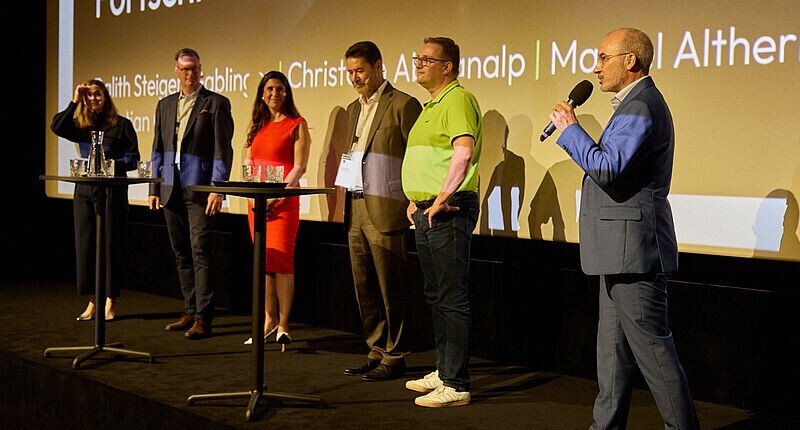BBV study outlines AI knowledge gap between executives and employees
Lucerne - The Swiss AI Impact Report 2025 from BBV Software Services has identified a risk for the digital transformation within businesses: There is a clear gap between executives and employees in relation to the level of knowledge and perception of success in the introduction of Artificial Intelligence (AI).
In total, 69 percent of Swiss executives believe that the use of AI harbors significant potential for their company, while just 47 percent of employees are as enthusiastic about this prospect. In cases where AI has already been integrated, 49 percent of executives deem it to have been a success, with the equivalent value for employees down at just 31 percent.
These are the findings from the Swiss AI Impact Report 2025, which was presented by the Lucerne-based software and consulting firm BBV Software Services, demoSCOPE AG and the Lucerne School of Business on August 27, 2025, at the Swiss AI Impact Forum held in Zurich. In total, 500 participants from various sectors of the economy and a range of company levels had been surveyed.
For BBV Software Services, these results clearly demonstrate a knowledge gap that is not being adequately addressed. In its press release, the company cites three reasons for this: A lack of strategic direction, a lack of time and a lack of clearly defined responsibilities. According to the information, management must take responsibility for these issues, and employees believe this is simply not happening enough.
«The Swiss AI Impact Report 2025 clearly shows that now is the time to act», as Stefan Häberlin, Head of Business Area AI at BBV, explains. «With the right levers, executives create the conditions for a successful AI transformation». These levers are said to be based around systematically closing the skills gap, filling the strategy vacuum with clear governance and ensuring visible, effective leadership.

